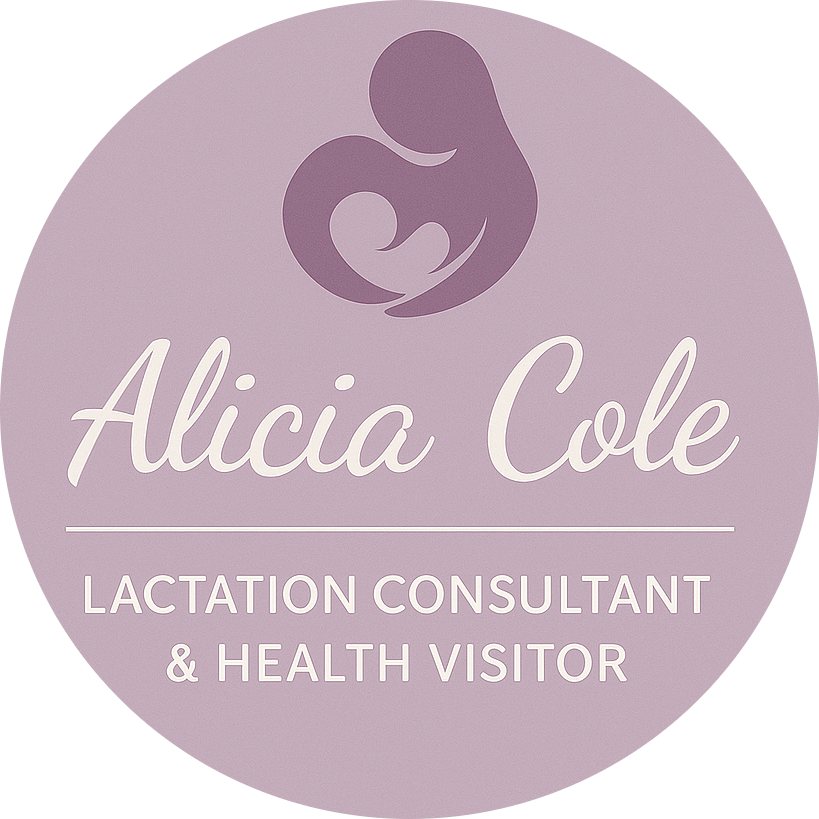Antenatal Education
You’ve thought about the birth plan, the playlist, the hospital bag, and the teeny-tiny outfits, now let’s start to think about the post-natal period. Sometimes parents think they choose a feeding method - breast or bottle - and that is how they will feed their baby. Otherwise I often hear:
“I’d like to give breastfeeding a go, but I’m also quite happy to bottle feed if needed.”
I get it. I said the same thing before my first baby. We don’t want to put too much pressure on ourselves or feel like we’ve “failed” if things don’t go the way we hoped.
But in reality, once baby arrives, some of the things I often hear are:
“I didn’t expect it to be this hard - I thought breastfeeding was natural?”
“Why is my baby feeding so often? I must not be making enough milk.”
“The thought of offering a bottle makes me feel like I’ve failed… but everyone keeps saying ‘fed is best.’”
After we give birth, instincts often kick in. Many parents describe an overwhelming desire to feed their baby no matter what it takes, especially if their birth didn’t go as expected. Feeding becomes not just about nutrition, but connection, healing, and identity.
Research has shown that antenatal education surrounding breastfeeding increases positive outcomes.
So my advice? Instead of spending money on the latest “must-have” gadget promoted by formula companies this week, consider investing in something far more valuable: preparing for your unique feeding journey. That could mean attending an antenatal feeding session or scheduling a home visit with an IBCLC in those first few days. The support and preparation you put in now can make all the difference later.
An Antenatal Preparation Session with me can take place in your home, via video call, or in a more public setting if you prefer, such as a café or in the park.
Together, we’ll explore your individual feeding goals, expectations, and any previous experiences. This conversation is guided by up-to-date, evidence-based information tailored to your unique situation. My goal is to help you feel informed, confident, and supported - no matter what feeding path you choose. Topics we can cover include:
The benefits of breastfeeding
How milk production works
Normal newborn behaviour
Common challenges in the early days
Colostrum harvesting (if desired or medically indicated)
Expressing and storing breast milk
Combination and bottle feeding - responsive and paced feeding
The safe preparation of formula milk
Preparing for the fourth trimester — including partner and family support
An introduction to safe sleep and activities to promote child development
Support available in the postnatal period
Inclusive Feeding Support
Every family’s journey to parenthood is unique. You may be expecting a baby through surrogacy or adoption, or you might be a non-birthing parent in an LGBTQI+ family and wish to provide your baby with breast milk. This process - known as induced lactation (or re-lactation if you have previously breastfed) is something I can support you with, offering guidance, practical steps, and emotional support.
Bereavement & Lactation Support
In the heartbreaking circumstances where a baby is expected to pass away shortly after birth or has died in-utero, some parents wish to understand what to expect in terms of milk production and what your options are. If you are navigating this path, please know I am available to speak with you as an IBCLC. This support is offered free of charge, with gentleness, empathy, and no expectation.
Investment
Face-to-face appointment (approx. 60-90mins) - £90
Virtual appointment (approx. 60 mins) - £70
From Bump to Babe: The Full Support Package
This fully bespoke package is designed to guide you gently and confidently through those early weeks of parenthood - combining antenatal preparation with hands-on postnatal support to set you up for success.
What’s included:
🤰 Antenatal Preparation Session
Recommended around 36-37 weeks gestation
A relaxed, in-depth session in the comfort of your own home, at a time that works for you. We’ll explore feeding, newborn care, and whatever else is on your mind - and I’ll provide helpful resources, reading links, and evidence-based guidance to support your learning.
👶 Postnatal Home Visit
Usually within the first week after birth
A comprehensive feeding assessment tailored to your baby and situation. Includes observation of a feed, oral assessment (if indicated), and a clear, personalised plan moving forward.
💛 Follow-Up Home Visit
Within the first 6 weeks
To review feeding, check in with your well-being, troubleshoot any issues, and offer ongoing reassurance.
📱 WhatsApp Support
Ongoing message-based support begins after the birth and continues until two weeks after your follow-up visit. I’ll be available to answer questions, provide encouragement, and guide you between visits.
£250




